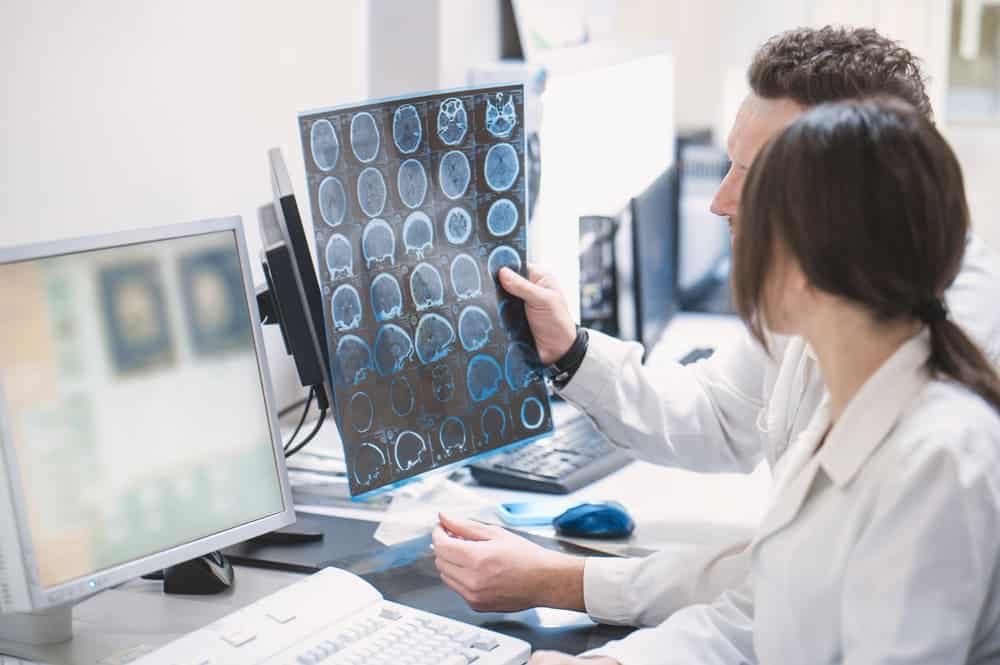Do you have a medical mystery that needs solving? Understanding the different types of MRI can help you discuss the best options with your doctors.
As a trusted provider of MRIs in Brooklyn, NY, City Wide Radiology provides a comprehensive range of imaging tests and puts patients at ease with compassion and expertise. Keep reading to determine which diagnostic approach you could benefit from most.
What Is a Magnetic Resonance Imaging Scan?
A Magnetic Resonance Imaging procedure uses a combination of magnetic fields and radio waves to create a detailed image of the body. The patient lies still in a tube, and the machine aligns the body’s hydrogen atoms in a specific way. A radio frequency pulse then changes the direction of the atoms.
When the pulse stops, the hydrogen emits a signal picked up by the imaging technology. Because different types of tissue release energy at different rates, the test distinguishes between muscles, bones, and more.
Cleveland Clinic estimates the average MRI procedure takes between 30 and 50 minutes. The machines are safe and produce no long-term risks. Doctors will ask you to remove any jewelry, and some people may experience severe anxiety, which the staff can help address.
The Benefits of an MRI Over Other Imaging Tests
John Hopkins Medicine reports the United States healthcare system provides 30 million MRIs annually. The various types of MRIs have several advantages compared to other diagnostic tests, including:
- Detailed imaging: The test provides a more detailed and complete image and distinguishes between bones, muscles, and more. It’s a step above an X-ray.
- Versatile use: The procedure can image nearly any part of the body and diagnose issues ranging from cancer and tumors to heart disease.
- Empowers improved planning: With the detailed results of an MRI, the doctors better prepare for surgery and are less likely to encounter any surprises.
- Safety: This method doesn’t expose the patient to radiation or have any safety concerns, provided they remove any magnetic material they wear.
Types of MRI Scans
Patients can take advantage of various types of Magnetic Resonance Imaging techniques, depending on their needs and symptoms. While technology and options continually improve, the most common include the following.
Measure Brain Activity With a Functional MRI (fMRI)
This technique uses a contrast substance inserted through an IV. It effectively diagnoses various neurological disorders and is an important aspect of brain research.
The test gives real-time data about the patient. For example, the doctor could play music or show a picture and map which regions of the brain the stimulus activates. It has the power to map emotion centers like the amygdala, memory activation, and more.
Scan Blood Vessels With a Magnetic Resonance Angiography (MRA)
Two types of diagnostic tests produce images of a person’s blood vessels. The angiography scans arteries, and the Magnetic Resonance Venography (MRV) shows veins. The difference lies in whether the blood contains oxygen.
An MRV or MRA can detect blood clots, artery disease, and more. It requires the use of an intravenous contrast substance.
Diffusion MRIs Help Diagnose Strokes
Among the types of MRI, only diffusion technology measures the detailed structures of the brain that other machines can’t. It maps how quickly water moves from a high concentration area to a low one. The technique greatly aids in managing stroke treatments and research into ischemia.
Cardiac MRIs Image the Heart
This MRI provides real-time images of the heart to detect any issues. It looks at muscle strength, valve function, and overall health. Patients with chronic heart conditions can receive this test regularly to monitor and guide the treatment process.
A Breast MRI is Crucial for Cancer Diagnosis
Do you have the BRCA 1 or 2 mutation that puts you at a greater risk of breast cancer? Frequent MRI tests can help doctors detect issues early and significantly increase the chance for positive outcomes. It detects tumors at a much higher rate than mammograms.
3T MRIs Harnesses Cutting-Edge Technology
Short for “three Tesla,” this machine uses a magnetic field twice as powerful as the traditional 1.5T Magnetic Resonance Imaging test. It produces more detailed images and thus has a higher accuracy rate. Not every clinic has access to this cutting-edge technology.
An Open MRI Puts Anxiety at Ease
HealthResearchFunding.org estimates about 13% of people experience a panic attack during the procedure. Claustrophobic patients can benefit from an open MRI, which doesn’t use an enclosed tube.
An anxious patient has trouble staying still, so the machine doesn’t produce an accurate picture. Eliminating anxiety improves results.
Magnetic Resonance Spectroscopy Produces a Chemical Graph
Rather than producing an image, the MRS creates a line graph that shows the concentration of various chemicals in the blood. Measuring these metabolites in the brain helps doctors assess the recovery process from a traumatic injury. It can also monitor the progression of diseases like Alzheimer’s.
Schedule an MRI in Brooklyn, NY
Now that you understand the types of MRI, reach out to City Wide Radiology. We’ll work with primary healthcare providers to determine the best diagnostic approach. Whether you’re wondering about open MRI advantages for claustrophobic patients or still feel anxious about the procedure, we’ll put you at ease.
Our doctors accept most insurance plans, including workers’ compensation, no-fault, and PIP (personal injury protection). Same-day appointments may be available. Call (718) 236-6800 to book an appointment.
Frequently Asked Questions
Consider the following answers to this topic’s most popular questions.
Will the Magnetic Field Harm Surgical Implants?
The magnetic field should not harm surgical implants like fillings or screws because they don’t contain magnetic metals. However, inform your doctor about them to determine the best approach.
Does Insurance Cover Imaging Tests?
Insurance often covers imaging tests for medically necessary diagnostics. Always check with your policy before scheduling an appointment.
What Magnetic Imaging Types Are Most Accurate?
The most accurate types of MRI depend on the medical condition, symptoms, and area of the body. In general, the 3T offers the clearest results for whole-body scans.

